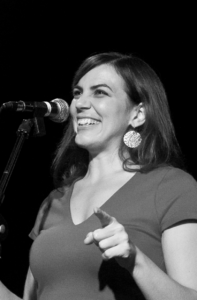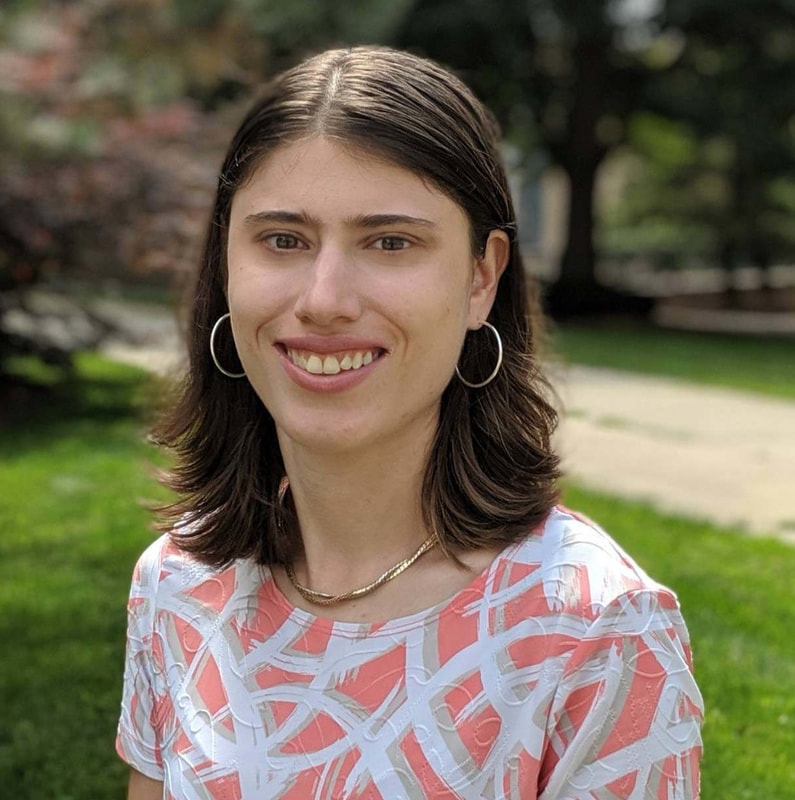Edited by Simon Bakke
We live through others and others live through us by way of storytelling. At some point on the evolutionary timescale, humans or human ancestors began telling stories huddled around the warmth of a campfire. Stories of success in warfare, failure in love, origin myths, and local gossip are ubiquitous genres. Cultural critic Walter Benjamin wrote, “The storyteller takes what he tells from experience—his own or that reported by others. And he in turn makes it the experience of those who are listening to his tale.”

One hypothesis for why humans have a propensity to tell and listen to stories proposes that stories are a platform for simulation learning. In listening to your kinsmen describe a successful rabbit hunt or a skillful escape from an attacker, you acquire valuable information about survival. A complementary hypothesis frames storytelling as a transaction in which the benefit to the listener is information that helps her navigate her environment, and the benefit to the storyteller is sharing information that benefits, well, the storyteller.
In an ideal world, stories would always benefit both the listener and the storyteller. Unfortunately, storytelling has a dark side.
We live in a world where people have conflicts of interest and incentives to lie. In the US, the word “narrative” has acquired political baggage and in many contexts is synonymous with propaganda. For such reasons, some hard-nosed, fact-driven scientists eschew storytelling, seeing it as merely a means to an end for would-be manipulators.
The stylish and effervescent executive producer of Story Collider, Liz Neeley, couldn’t disagree more. Story Collider is a non-profit organization that provides an outlet for scientists to share true and personal stories about science through weekly podcasts and live shows. To Liz, the best way to get the public excited about science is to make science relatable. The scientists who tell their stories on Story Collider talk not only about their science but how science weaves into their own personal narratives.
I conducted a midday interview over Skype with Liz to discuss science, art, and the ethics of storytelling, where we confronted the border between persuasion and manipulation, and why exploring that border is so essential to both scientists and the people they’re trying to reach.
You are a successful science communicator contributing to a popular podcast and doing work that you’re passionate about—would you be willing to share your own personal story on how you came to achieve your success?
Liz Neeley: I am one of those people who knew exactly what I wanted to do. I wanted to study fish. When I was 6 or 7 years old, we lived in Iceland and a Navy diver came to class and showed us a sea anemone—it blew my mind that this thing was alive and that anything can live in the waters in Iceland. From that time on, I was interested in fish, not dolphins or whales.I was a marine biology major at the University of Maryland, and I did research on oyster reef restoration. I was interested in little fish that live in oyster reefs—how they experience the world. The visual systems of tropical reef fish—to us [the fish] are vibrantly colored—but what do they look like to each other and what do they look like in context?The hard thing about working on coral reef ecosystems is knowing what we know about the multiple stressors that affect these delicate ecosystems from over-fishing to climate change. I realized that these things that are so fascinating to me might not be around in the future, and it was that feeling that sparked the beginning of the shift in my interest from science to science communication.
So, you were driven to save these delicate ecosystems by communicating the science of climate change to the public?
Liz: Yes, I did science and science communication at SeaWeb. Back then I thought science communication was really simple: If only people knew what we know, it would change behavior. I thought it was about getting facts to people… if only people had more facts, more data. I thought that would be enough to persuade people. In science communication, this is known as “the deficit model”—I learned the hard way that the deficit model doesn’t work.
The data is so clear in terms of the life history and the population structures of these organisms. You can’t exert harvest pressures… everyone would see that it’s not sustainable. That’s why I’m fascinated by power and influence.
We’re outgunned in science, because it’s easier to tell a more interesting story if you’re not tethered to the facts.
I started digging around about how people see the world. I went from how fish perceive the world to how humans perceive the world—how we see and process the world and make meaning.
For someone who started her career just wanting to talk about data, I hated the word narrative. I thought it was childish and manipulative, or just people putting on artistic airs, but then I kept reading the literature. I couldn’t get away from it.
Ultimately, the best available science tells us that stories are more interesting and engaging than straight exposition. People understand them better, and they’re more persuasive. So, when I was recruited to join Story Collider, I saw it as a chance to do something rare in the world—to unite the full force of my intellect—my art and artistic sensibilities.
It’s powerful to work in this transdisciplinary way, where we take the art just as seriously as the science. How do we change people’s views about science specifically? This isn’t like making those people love science the way scientists do… rather, I believe science belongs to everyone and I want people to feel as much investment and ownership of it as possible. Story Collider is an opportunity to humanize scientists—their hopes, dreams, failures, disasters, the process of science, and getting away from the idea that science is a body of facts that need to be handed over. We want to invite non-scientists to explore the world the way we do.
How do you see the relationship between art and science?
I value personally two things—truth and beauty. And I think art and science help us see different dimensions of those things. Art and science require different things of us, but we sometimes forget that they also require much of the same things: caution, expertise, interpretation, and slow, painstaking discipline. Both art and science are premised on truths in the world, and I think that intellectualism, humility, and playfulness unite both.
Story Collider brings science and storytelling together, but not everyone, including some scientists, are okay with that. What are the main objections you hear to combining science and storytelling?
Liz: Some categories of objection to narrative in science are important to consider. Too much focus on character can inadvertently lead to a solo narrative, but science is collaborative and interdisciplinary. We’re all standing on the shoulders of giants. But stories by their nature are anecdotal; they are specific. And science is about the collective, the plural, the data. Those are reasons to be cautious. But what I often see is that in our attempt to hone our objectivity and our ability to be dispassionate about the merits of the evidence alone, it gets warped into a worldview that logic is good and emotion is bad. I have seen scientists shaking with clenched fists, saying they are not emotional about their science.
When scientists talk about storytelling, we think about “handwaving” and “just so” stories—stories that don’t hold up against the data. Stories might misrepresent the world, but storytelling is a powerful tool that can be used to build a house or to tear it down.
What are the ethics of storytelling, specifically in the context of science communication?
Liz: Stories used with the intent of communicating science should respect the agency of audiences. I find comfort and a clear line between persuasion and manipulation. The latter is never okay. The difference between persuasion and manipulation depends on the storyteller’s stance to an audience. Does the storyteller want the audience to do what she wants them to do no matter what, or does she respect the agency of the listeners? The goal should be to get people to engage in perspective-taking. The audience might not agree with you in the end and the storyteller must respect that. That’s the difference between manipulation and persuasion.
“Spin” or “spinning” something can be manipulative, but it’s also a form of framing. It’s a sense-making device, connecting information to things we already care about. Framing is how we take new information and connect it to ideas and values that we already have. It’s easy to think of metaphors. If I say this story is like David and Goliath—that’s a reference that relates it to a value system. We all have value sets.
Do you have any advice to help listeners discern truth from fiction?
Liz: In storytelling, we talk about verisimilitude—it’s about honesty and authenticity, so they say. I see it in dialogue: do the characters in this story sound true? If I’m talking about a 16 year old, is that how a 16 year old talks? It’s a combination of everything that the storyteller is bringing to the stage, is it plausible, does it make sense?
Does it matter if a story is true? Of course. Does it matter if everything is factually precise? Maybe less so. It’s the difference between accuracy and precision. We strive for accuracy in science communication, but the degree of precision will be different depending on the audience. There are also details that are context-dependent. If you’re telling a story about getting lost as a little kid, does it matter if it was February 2 or 3? Internal consistency is what’s important.
There is a whole field of psychology called narrative identity. How do we string our lives together? What did we do in the past, and does it predict what we might do in the future? At Story Collider, we want the stories to be true. We ask people to go through a process and examine those past memories in order to get at those truths. We believe that these are their own lives, what they make of it—it is a meaning-making device. It’s not a transcript or a record. It plays a different function.
What do you want non-scientists to know about either about scientists or the nature of science?
Liz: I hope that through Story Collider that people who haven’t thought about science since they left school, or who only know about it through movies, understand that this is a powerful, beautiful way of looking at the world. It doesn’t require any unique genius. All kinds of people with a variety of skills, strengths, and backgrounds do science. Just like any other profession we have good days and bad days, but we are striving for something greater than ourselves. I hope they see the passion, love, and dedication of those of us who devote our lives to science.



Leave a Reply